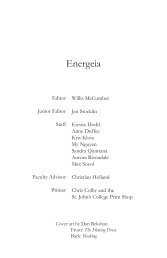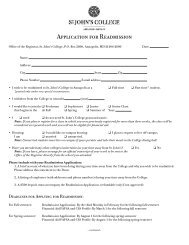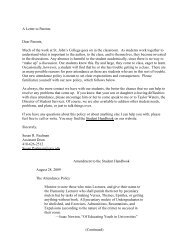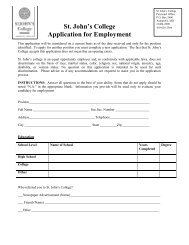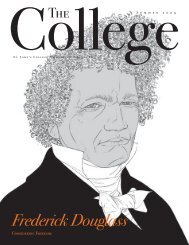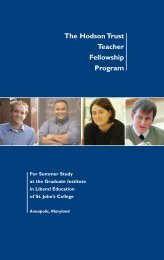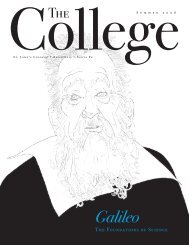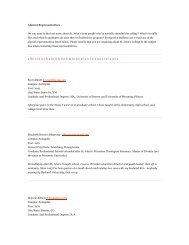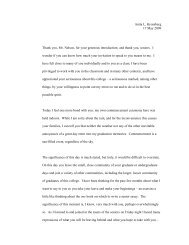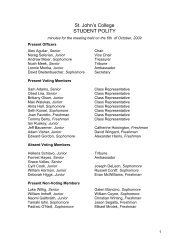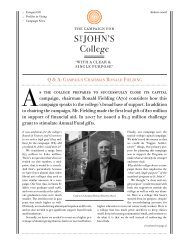âTo Meet with Macbeth,â given by tutor Louis ... - St. John's College
âTo Meet with Macbeth,â given by tutor Louis ... - St. John's College
âTo Meet with Macbeth,â given by tutor Louis ... - St. John's College
You also want an ePaper? Increase the reach of your titles
YUMPU automatically turns print PDFs into web optimized ePapers that Google loves.
Ross.<br />
Ay, on the front.<br />
Siward.<br />
Why then, God’s soldier be he!<br />
Had I as many sons as I have hairs,<br />
I would not wish them to a fairer death:<br />
And so his knell is knolled.<br />
Now the politic young Malcolm, also not a fighter, but the chief beneficiary of the sacrifices of this war,<br />
tries to appropriate the action emotionally:<br />
Malcolm.<br />
He’s worth more sorrow,<br />
And that I’ll spend for him.<br />
Siward.<br />
He’s worth no more:<br />
They say he parted well and paid his score:<br />
And so God be <strong>with</strong> him!<br />
(V.viii.39-53)<br />
Does Young Siward die a fair death? To those who do not witness it, perhaps. What is beautiful to me is<br />
how the father receives the news his way in this unmilitary company of uneasy survivors. However, I<br />
have seen productions that cut those of his lines that the director and company found morally<br />
repugnant. We must all make our decisions about what “more” or “no more” we would tolerate of<br />
certain things in this play, for we are not <strong>given</strong> to see if God has soldiers, or what He requires of man to<br />
“pay the score.” Yet we have our moral business still to conduct unseeingly .<br />
Macduff’s meeting <strong>with</strong> <strong>Macbeth</strong> is the greatest of the fights in Shakespeare to watch and<br />
ponder. An honest and decent audience must find it troubling. Imagine that <strong>Macbeth</strong> enters stage left,<br />
having gashed open a few more foes, and he strides towards the opposite stage right exit; Macduff now<br />
enters stage left, sees <strong>Macbeth</strong> about to slip away, and in that apocalyptic voice that we heard raising<br />
the sleepers to face the image of doomsday, he booms out four distinct syllables: “Turn, hell-hound,<br />
turn!” (V.viii.3). They must sound like the thunder, completely arresting, like the voice of God<br />
demanding that the great sinner turn and face his deeds to see how vile he is become. <strong>Macbeth</strong><br />
53




